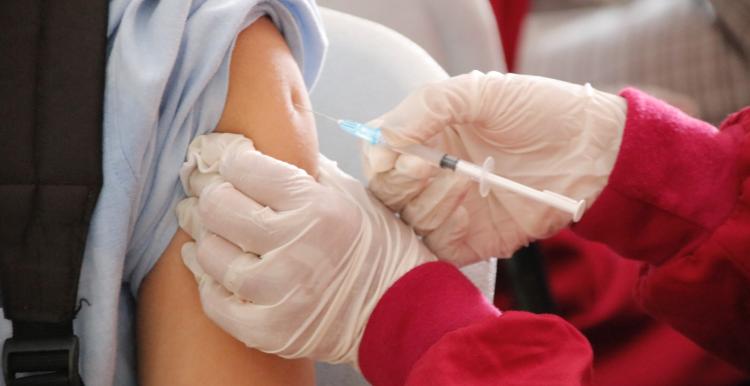The RSV vaccine: what you need to know

What the RSV vaccine is for
RSV usually gets better by itself, but in some people (especially babies and older adults) it can cause illnesses such as:
- pneumonia (a lung infection)
- bronchiolitis (a chest infection that affects babies)
These illnesses can cause serious breathing problems. They may need to be treated in hospital and can be life-threatening.
Getting RSV can also make your symptoms worse if you have a lung condition, such as chronic obstructive pulmonary disorder (COPD).
The RSV vaccine helps reduce the risk of serious breathing problems like pneumonia and bronchiolitis.
Who can have the RSV vaccine?
The RSV vaccine is recommended if:
- You're pregnant – the vaccine is recommended during every pregnancy (from 28 weeks onwards) to help protect your baby after they're born.
- You're aged 75 to 79.
If you're aged 80 or over
- If you turned 80 on or after 1 September 2024, you're eligible for the RSV vaccine until 31 August 2025.
- You're not eligible for the RSV vaccine if you turned 80 before 1 September 2024.
How to get the RSV vaccine
There are different ways to get the RSV vaccine.
If you're pregnant
You should be offered the RSV vaccine around the time of your 28-week antenatal appointment.
Getting vaccinated as soon as possible from 28 weeks will provide the best protection for your baby. But the vaccine can be given later if needed, including up until you go into labour.
Speak to your maternity service or GP surgery if you're 28 weeks pregnant or more and have not been offered the vaccine.
If you're aged 75 - 79
Your GP surgery will usually contact you about getting the RSV vaccine. This may be by letter, text, phone call or email.
How the RSV vaccine is given
The RSV vaccine is given as an injection into your upper arm.
Unlike some vaccines (such as flu or COVID-19 vaccines), the RSV vaccine is given all year round.
If you're pregnant, you should have the vaccine during every pregnancy. This will help make sure each baby is protected for the first 6 months after they're born, when they're most likely to get seriously ill if they get RSV.
Older adults only need 1 dose, which should protect them for several years.
Having the RSV vaccine at the same time as other vaccines
If you're pregnant, you can have the RSV vaccine at the same time as other pregnancy vaccines, such as the whooping cough and flu vaccines.
But it's best to have them as soon as they're offered rather than waiting to have them at the same time.
If you're aged 75 to 79, the RSV vaccine is not usually given at the same appointment as your flu or COVID-19 vaccines, but you can have them at the same time if a doctor or nurse thinks it's needed.
You can have it at the same time as other vaccines, such as the shingles and pneumococcal vaccines.
Who cannot have the RSV vaccine
Most people who are eligible for the RSV vaccine can have it.
You only cannot have the vaccine if you've had a serious allergic reaction (anaphylaxis) to a previous dose of the vaccine or an ingredient in the vaccine.


